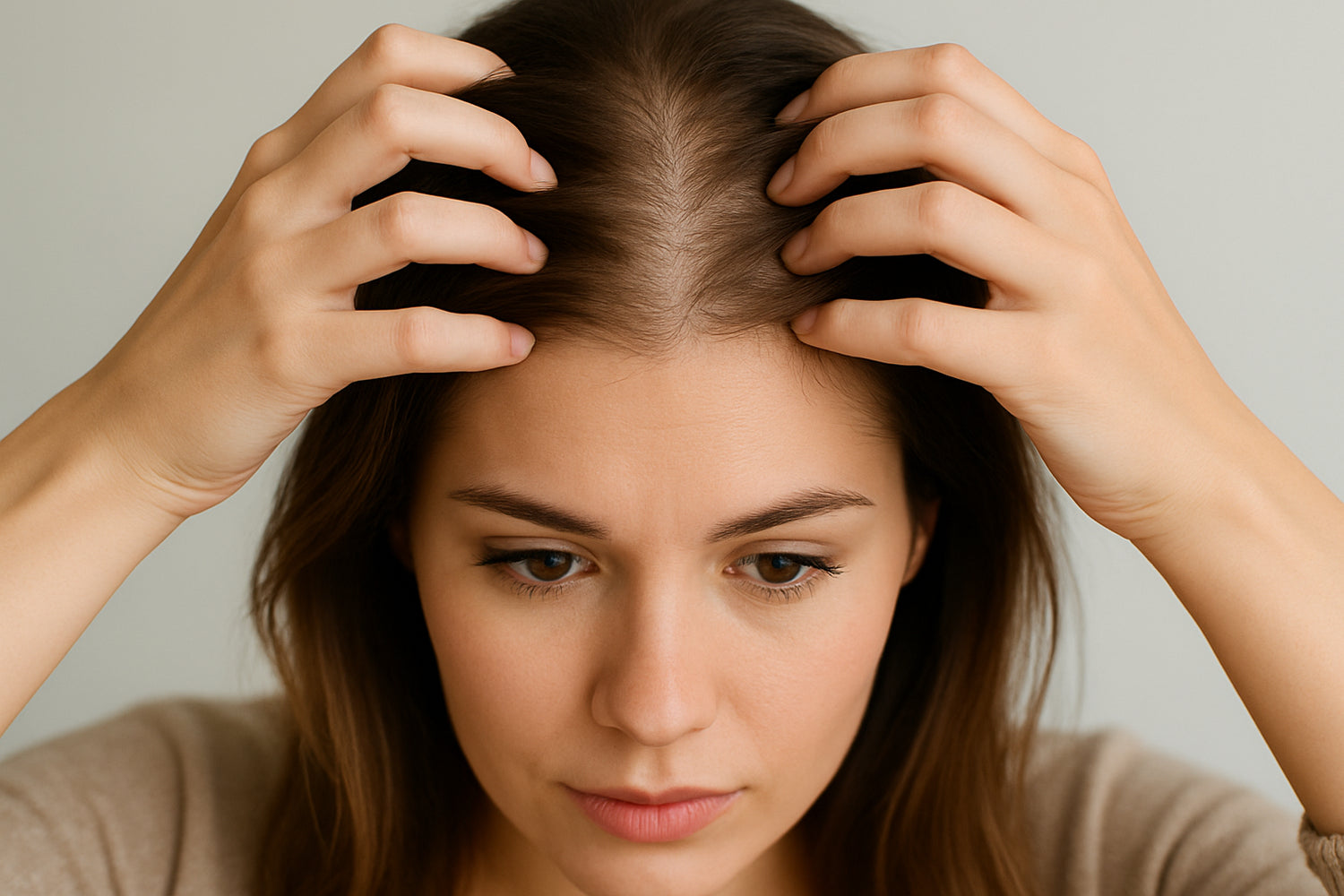Sleep is a vital function of the human body, allowing for physical and mental recovery. However, insufficient deep sleep can have deleterious consequences on our overall health. And yet:
- 1/3 of French people sleep less than 6 hours
- 1/3 of French people are affected by sleep disturbances
- 16% of French people suffer from chronic insomnia
- The French sleep on average 1h30 less than 50 years ago
In this article, we will discuss the different parts of sleep and the effects of too little deep sleep.
We will also examine the factors that influence this phase of sleep and offer tips for improving its quality.
- What is deep sleep?
- What causes a lack of deep sleep?
- What to do to get a deep sleep?
- The consequences of a lack of deep sleep
| Solutions | Description |
|---|---|
| Consider dietary supplements | Incorporate supplements like valerian, passionflower, chamomile, magnesium or vitamin B6 to support relaxation and sleep. |
| Reduce exposure to screens | Limit screen time at least one hour before bedtime to avoid the effect of blue light on melatonin production. |
| Create an enabling environment | Ensure a dark, quiet room at a temperature of 16 to 18°C. |
| Maintain regular schedules | Adopt a routine of going to bed and waking up at fixed times to synchronize your body clock. |
| Establish a relaxing ritual | Establish a calming ritual 30 to 60 minutes before bed. |
| Take care of your diet | Favor foods like bananas, fish, eggs or whole grains. Avoid heavy meals late at night, limit caffeine in the afternoon and reduce fluids before bed to avoid nighttime awakenings. |
| Exercise regularly | Engage in moderate physical activity, such as walking or swimming, to improve the quality of deep sleep. |
What is deep sleep?
A night is divided into several cycles . During these cycles, several phases of sleep follow one another:
- light slow sleep,
- deep slow sleep,
- and REM sleep.
It's the second phase that interests us here, the one during which your muscles relax and your heart rate and breathing rate drop, as does your brain activity.
During this phase of deep sleep, the brain evacuates metabolic waste, memory is consolidated, immune defenses are strengthened and we recover from physical fatigue .
This phase of sleep occurs particularly at the start of the night : this is the moment that you should focus on!
When you lack deep sleep, your body and mind no longer keep up. You are constantly tired, irritable, have trouble concentrating and feel weak. In the long term, this can have serious consequences on your health. Hence the importance of sleeping well!
What causes a lack of deep sleep?
Experts distinguish between psychological, physiological and environmental causes.
Psychological causes
First, daily stress and anxiety , particularly exacerbated by particular events such as periods of stress, can disrupt deep sleep by making it difficult to fall asleep and by fragmenting sleep.
Also, depressive disorders are often associated with sleep problems , including reduced deep sleep, which can worsen depressive symptoms.

Environmental causes
Noise pollution , whether from the outside environment or household noise, can interfere with the ability to achieve deep sleep.
Excessive exposure to light, especially blue light emitted by screens before bed, can disrupt melatonin production and affect the circadian rhythm, reducing sleep quality.
Finally, temperatures that are too high or too low in the bedroom can also affect sleep quality. An environment that is too warm, in particular, can prevent the body from cooling down naturally during the night, which is essential for restful sleep.
There are also physiological causes such as sleep apnea or restless legs syndrome, but these are diagnosed by a doctor. The solutions that we will propose to you in the rest of the article cannot be taken into account for these two cases.
What to do to get a deep sleep?
Consider dietary supplements
Although improving deep sleep is primarily achieved through healthy lifestyle habits, certain dietary supplements can provide additional support.
Plants such as valerian, passionflower or chamomile are known for their relaxing properties and can be consumed in the form of herbal teas or supplements.
Magnesium and vitamin B6 also play a role in regulating sleep. However, seek the advice of a healthcare professional before starting any supplementation, as needs vary from person to person and some supplements may interact with medications or have contraindications.

The combination of soothing plants, melatonin and magnesium will help you get a restful sleep . Discover our food supplements!
Reduce exposure to screens
The omnipresence of electronic devices in our daily lives can have a negative impact on our sleep.
Blue light emitted by phone, tablet and computer screens inhibits the production of melatonin, the hormone responsible for regulating the sleep-wake cycle.
To improve the quality of your deep sleep, it is recommended to limit the use of these devices to at least one hour before bedtime.
If you absolutely must use them, turn on night mode or use blue light filtering glasses. You can also replace these activities with more sleep-friendly alternatives, such as reading a paper book or listening to soft music.
Create an enabling environment
The environment in which you sleep plays a determining role in the quality of your deep sleep. Your bedroom should be a sanctuary dedicated to rest.
Make sure it is dark enough by using blackout curtains or a sleep mask if necessary.
Silence is also important; if you live in a noisy environment, consider using earplugs or white noise to mask disruptive sounds.
The ideal temperature for sleeping is between 16 and 18°C. A comfortable mattress and pillows, as well as quality sheets, also help to create an environment conducive to restful sleep.
Maintain regular schedules
Consistency is the key to good, deep sleep. By going to bed and waking up at consistent times, even on weekends, you help your body synchronize its internal biological clock.
This regularity allows your body to anticipate periods of sleep and wakefulness , thus optimizing the production of hormones necessary for deep sleep.
Try not to deviate more than an hour from your usual schedule, even on rest days. If you must change your schedule, do so gradually over several days to allow your body to adjust.
Establish a relaxing ritual
A well-established bedtime routine can greatly improve the quality of your deep sleep. This ritual should begin about 30 to 60 minutes before your scheduled bedtime .
It may include calming activities such as reading, listening to soft music, practicing deep breathing techniques, meditation or light yoga .
These activities help reduce stress and anxiety, preparing your body and mind for sleep. Avoid stressful conversations or stimulating activities during this time. Consistency in this ritual will send a clear signal to your brain that it is time to prepare for sleep.
Take care of your diet
What you eat and drink, especially in the hours before bed, can greatly influence the quality of your deep sleep.
Choose foods rich in tryptophan, an amino acid that is a precursor to serotonin and melatonin . It is found in bananas, fish, dairy products, eggs, nuts and whole grains.
Avoid heavy meals late at night, which can disrupt your digestion and sleep.
Also limit your caffeine intake from the afternoon onwards, as its effects can linger for several hours.
Alcohol, while it may help you fall asleep faster, disrupts sleep cycles and reduces the quality of deep sleep.
Hydrate adequately during the day , but reduce your fluid intake before bedtime to avoid nighttime awakenings.
Exercise regularly
Regular exercise is beneficial for deep sleep, but the time of day you exercise matters. Moderate physical activity, such as brisk walking, cycling, or swimming, done regularly during the day can significantly improve the quality and duration of your deep sleep.
Exercise helps reduce stress, regulates hormones, and tires the body in a healthy way. However, avoid intense exercise within 2 to 3 hours of bedtime, as it can have a stimulating effect and make it harder to fall asleep. If you prefer to exercise in the evening, opt for gentle activities such as yoga or light stretching.

It is important to try these solutions because a lack of sleep can drastically disrupt your daily life. Be careful, if these tips do not help you, contact your doctor.
The consequences of a lack of deep sleep
Cognitive disorders
A deep sleep deficit negatively affects several cognitive functions. People who lack deep sleep have difficulty maintaining concentration, multitasking, and remaining alert in monotonous situations, such as driving .
Sleep plays a vital role in memory consolidation and learning. Thus, a lack of deep sleep disrupts these processes, affecting the ability to retain new information. In addition, executive functions, such as planning, organizing, and adapting to new situations, become more difficult.
Mood swings
Lack of deep sleep also has a significant impact on emotional state . People deprived of deep sleep are more likely to be irritable and overreact to negative stimuli. Poor sleep is associated with an increased risk of developing mood disorders, including depression. In addition, deep sleep is essential for emotional regulation; its absence can lead to difficulties in managing stress and emotions.
Daytime sleepiness
Excessive daytime sleepiness is a direct consequence of the lack of deep sleep. Individuals experience chronic fatigue that does not improve despite rest. This sleepiness negatively affects performance at work and in daily activities. In addition, it increases the risk of accidents, especially road accidents, due to decreased alertness.
In short, lack of deep sleep can have long-term consequences on brain health. It can contribute to cognitive decline and increase the risk of dementia in older adults. It is therefore important to maintain good sleep hygiene to preserve cognitive function, emotional stability and daytime alertness.
As you will have understood, investing in quality sleep means protecting your health in the long term. By changing your habits and adopting good practices, you can find restful sleep and, with it, better energy, concentration and serenity in your daily life.
Deep sleep is not a luxury, but a necessity for a balanced and fulfilling life.







